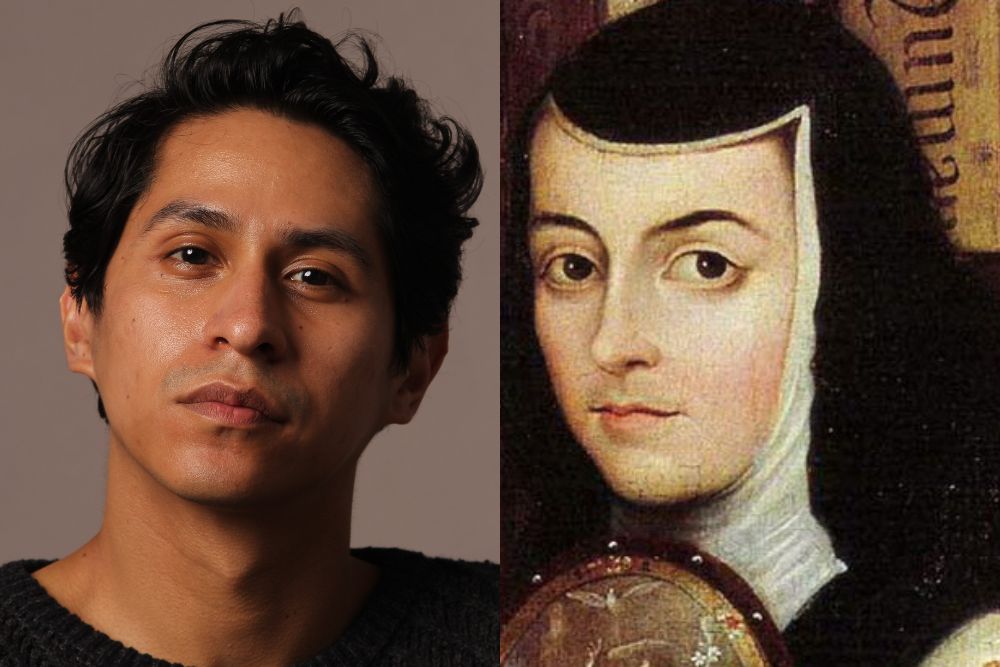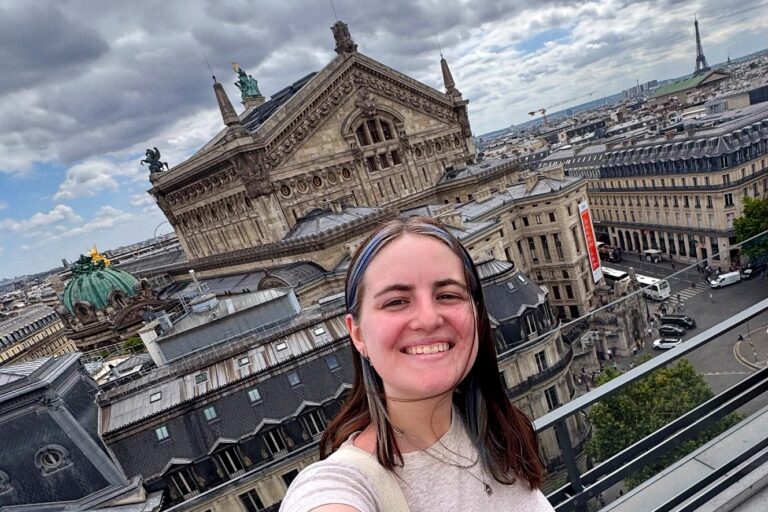Michigan State University’s Department of Theatre will present the world premiere of the English translation of Love is the Greater Labyrinth by 17th-century Mexican playwright/poet/philosopher Sor Juana Inés de la Cruz, Sept. 28 through Oct. 1, at the Arena Theatre in the MSU Auditorium.
Director Oscar Quiroz, an Artist-Educator and MFA Acting Candidate in the Department of Theatre who hails from the Republic of Honduras, was surprised to learn that de la Cruz, a national icon of Mexico who is considered to be the first great Latin American poet and who is even pictured on the 200-peso bill, was not largely recognized here in the United States. He wanted to introduce the MSU community to the work and legacy of this important Hispanic literary figure.

“I have always been fascinated by Sor Juana and her work,” Quiroz said. “She was a nun who wrote poetry and comedies in 17th-century colonial Mexico, and in her work, she usually denounces the double standards of her society over women and advocates for a woman’s right to be educated.”
Love is the Greater Labyrinth was de la Cruz’s final play for which she reimagined the classical Greek myth of Theseus (Teseo), a legendary hero of ancient Athens, and the monstrous Minotaur. This swashbuckling adventure where Teseo confronts the Minotaur, a bull-headed beast living deep inside the labyrinth of his palace, also includes romantic entanglements and moral dilemmas involving the princesses Fedra and Ariadna.
“I have always been fascinated by Sor Juana and her work. She was a nun who wrote poetry and comedies in 17th-century colonial Mexico, and in her work, she usually denounces the double standards of her society over women and advocates for a woman’s right to be educated.”
Oscar Quiroz, MFA Acting Candidate
The MSU production is a part of the Department of Theatre’s Storefront Series, which provides dynamic roles to showcase and challenge acting students. Creative teams are challenged to work with limited resources and shorter rehearsal periods, with an emphasis on writing, acting, and directing.
Quiroz forged both cross-country and cross-college collaborations for this project. His desire to shine a spotlight on de la Cruz’s words began by connecting with the UCLA Working Group on the Comedia in Translation and Performance and their Diversifying the Classics project, which translated the play from Spanish to English.

“I came across this translation of Amor es más Laberinto through UCLA´s translation group Diversifying the Classics, a group dedicated to expanding the so-called classical theatre cannon,” Quiroz said.
Through this connection, Quiroz, Storefront Artistic Director Alexis Black, and Department of Theatre Chair Stephen DiBenedetto gained permission to stage the world premiere performance of this translation at Michigan State University.
“In the United States, there appears to be a narrow focus on classical theatre, mainly centered around well-known names like Shakespeare and Moliere,” Quiroz said. “Latinidad is seldom associated with these long-standing literary traditions, and playwrights like Sor Juana often lack a platform for performing classics, despite their significant role in Latin American culture over the years. I aim to encourage people to appreciate art for its intrinsic value.”

In addition to the collaboration with UCLA to access the translation, MSU’s Department of Romance and Classical Studies (RCS) provided support to bring this work to the stage and to document the experience.
“The Department of Romance and Classical Studies is delighted to collaborate with the Department of Theatre on this production,” said Dr. Anthony Grubbs, Chair of RCS. “It is refreshing to see Colonial Latin American theatre represented on the modern stage. The playwright, Mexican nun Sor Juana Inés de la Cruz, was a prominent intellectual in the 17th century and this adaptation and translation of her play will certainly please all audiences.”

Tickets for Love is the Greater Labyrinth are $10 for general admission and are available online at whartoncenter.com, at the Wharton Center box office, or by calling 1-800-WHARTON.
Performance Times:
- Thursday, Sept. 28, at 7:30 p.m.
- Friday, Sept. 29, at 8 p.m.
- Saturday, Sept. 30, at 2 p.m.
- Saturday, Sept. 30, at 8 p.m.
- Sunday, Oct. 1, at 2 p.m.
For more information on the show and other MSU Department of Theatre productions, visit: https://www.whartoncenter.com/events/category/dept-of-theatre.


